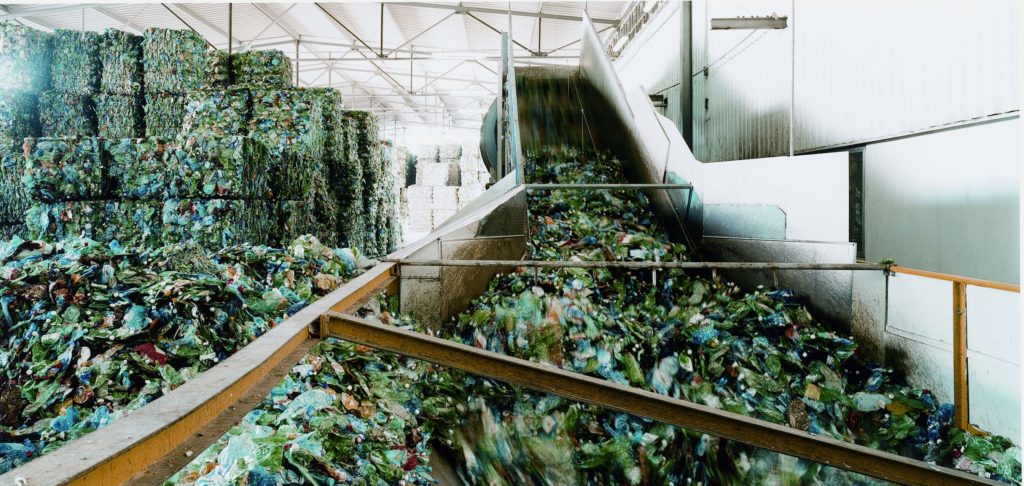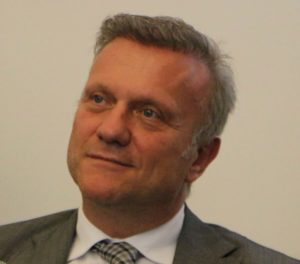A partner of major brands in this industry, Freudenberg highlights the Group’s strategy in terms of social responsibility and sustainability, aiming at promoting the design of sustainable collections starting from interlinings
Freudenberg is the world-leading manufacturer of interlinings, and the first one to believe in sustainability so much as to adopt its criteria and apply it in multiples of plenty.
«To us sustainability takes precedence – Simone Visani, Head of Sales & Marketing Freudenberg Performance Materials Apparel Italia explains – not least because we are convinced that in future ethics and aesthetics will be an inseparable whole. Informed and empowered consumers will continue to be sensitive to the greatest possible value for money; however, they will look for better guarantees of a product’s embedded quality and a trackable supply chain. In addition, now more than ever, the sustainability issue is a prerequisite for those who wish to go for innovation; everybody knows that innovation is the only way to develop more and more sustainable processes and products. Hence, both these aspects are essential and synergically related ».

Freudenberg Performance Materials started recycling in 1990. Every day, approximately 7 million post-consumer PET bottles reach recycling plants based in Novedrate, Pisticci and Colmar, where Freudenberg converts them into polyester nonwoven materials. Such a manufacturing cycle not only obtains the recovery of waste that would otherwise end up in a landfill, but significantly reduces CO2 emissions in the atmosphere. Moreover, replacing virgin raw materials with recycled polyester, while offering the same quality standards, the company saves natural resources and reduces the environmental impact while phasing-out energy consumption connected with the production of virgin polyester. «Every year Freudenberg recycles 85,000 tons of plastic bottles: approximately 2.5 billion of bottles» Visani points out. «Since 2000 the factory has been applying a biofilter system to treat emissions that exploits the capacity of micro-organisms to “digest” some substances in the emission flow hence releasing mainly water vapour. This clear, transparent and responsible path demonstrates the awareness of Freudenberg towards a sustainable development. The range of recycled PET interlinings by Freudenberg is evolving continuously and offers innovative solutions for sustainable collections. The latest item is the Comfortemp Fiberball Padding, entirely made of recycled polyester beads. The sustainability issue is crucial, above all in the outdoor clothing industry, in fact sensitive to this issue.

«Sustainability is a topic trend in the Clothing Industry» says Cristiano Zanetti, Sales Manager FPM Apparel Italia. «All major companies in this Industry follow this path since end consumers more and more demand sustainable, traceable and performing clothing. In the end, many people benefit from Comfortemp Fiberball Paddings: Freudenberg, clothing manufacturers, consumers and the environment. In fact, thanks to this smart padding, one can stand all climate conditions».
AN OLISTIC STRATEGY
Freudenberg Group’s guiding principles – aimed to promote social equity and respect for individuals, workers and consumers as well – and high quality standards offer a strong tradition in terms of social responsibility; in fact, they represent a natural environment to develop a meaningful and global sustainable strategy in 60 countries where Freudenberg operates.
«In order to add value to the supply chain and to cut the resource consumption – Christian Cavaletti, Operations Manager FPMA Italia Sant’Omero adds – at Freudenberg’s we have tackled the sustainability issue along the whole product lifecycle. Starting from raw material selection to the use of energy in the manufacturing process, from the use of our products by consumers to the final disposal. Hence, we conceived a holistic strategy aiming at preserving our resources while making our manufacturing sites more and more efficient (Footprint); meanwhile we are engaged to promote sustainability at our customers’ and deliver fully traceable products (Handprint) ».
A good example of how Freudenberg works is the development of products free of harmful substances, such as azo-dyes, formaldehyde and APEOs [Ed: APEOs, alkyl-phenol-ethoxylates are a group of non-ionic surfactants that, thanks to their chemical structure, are very useful in wet treatments carried out at textile mills, due to their solvent, cleaning and emulsifying action. However, they are extremely harmful to the environment and aquatic life].
It means that we have to comply with number of guidelines/directives, say:
- REACH (Registration, Evaluation, Authorization and Restriction of Chemicals);
- GHS (Globally Harmonized System);
- Freudenberg internal FSS7 standards on chemical safety and some other important, international guidelines.
«Our proposal to go for a circular economy, “Recycle-Reduce-Reuse” – Visani adds – is the only real solution to counteract the climate change. Our decision to support it was an important step up to development projects at Freudenberg’s ».
REDUCING CONSUMPTION AND EMISSIONS
The Group’s manufacturing process shows how this Industry can really preserve natural resources while even reducing energy use and emissions to the atmosphere. On this path, Freudenberg also chose to operate a power and thermal energy co-generation plant. Its high efficiency can meet the energy demand of the company; while saving oil thanks to co-generation, we can also lower CO2 emissions by almost 45% as against traditional sources.

Energy saving is the main aim at the Sant’Omero plant too; this is a perfect example of the skilful blend of innovation and tradition, where Freudenberg makes camel hair and canvas interlinings in a vertical manufacturing process.
«Our energy efficiency improved significantly – Cavalletti explains – thanks to number of measures, like new energy management systems. Since 2009, we have been reducing the energy consumption by one third, from 0.37 to 0.24 kWh per Euro of turnover. From 2016 to 2018 the water consumption declined by 9% (> 10 million litres), energy consumption by 5%; we reuse 48% of textile and fibre rejects and waste as well as 400 kg of packaging film. We did a lot to make our process and products more efficient and safer, while promoting professional development, safety at work, as well as optimizing our process and the use of recycled materials».
Our continuous efforts towards a sustainable and responsible manufacturing system obtained some certifications to the FPMA plant in Sant’Omero:
- ISO 9001 –Quality Management System;
- ISO 14001 – Environmental Management System;
- OHSAS 18001 – Health and Safety Management System.
«Our products are free of SVHC (Substances of Very High Concern), that can cause very serious and often irreversible effects to humans and the environment – Cavalletti adds – while we ensure the traceability of raw materials. Our outside parties and contractors are from this area. We supply our customers with an Oeko-Tex Class 1 and Class 2 certification».
NATURAL PRODUCTS FROM WASTE

«Applying an exclusive processing technique, recently we have developed new thermal paddings – Simone Visani adds; these contain a high percentage of natural fibres from silk and wool wastage of textile mills or manufacturing units of our customers. We obtain the waddings in a special machine developed by Freudenberg, which makes the product extremely bulky. This technology enables us to obtain a natural, sustainable and eco-friendly padding, unique for its volume and performance».

